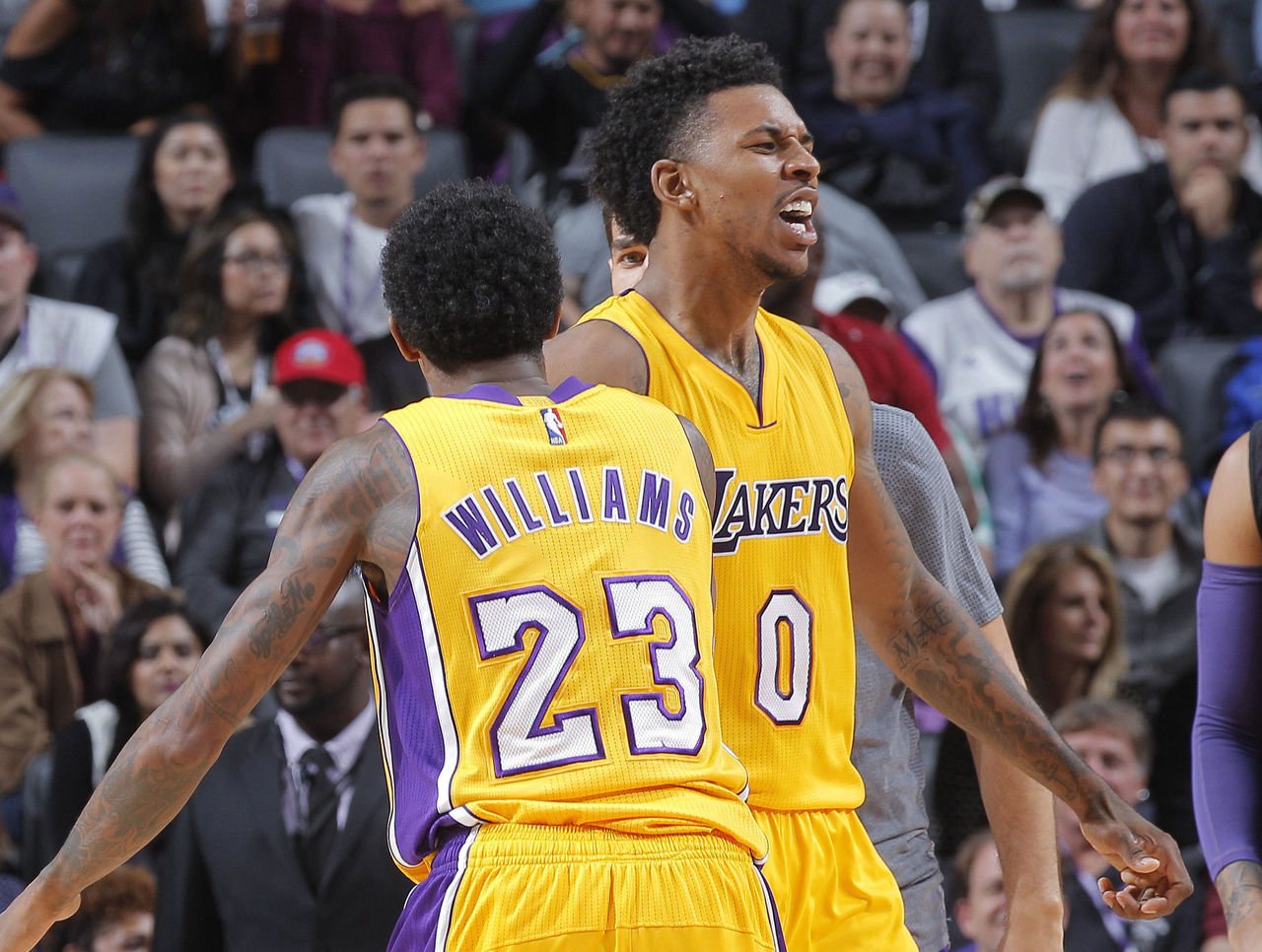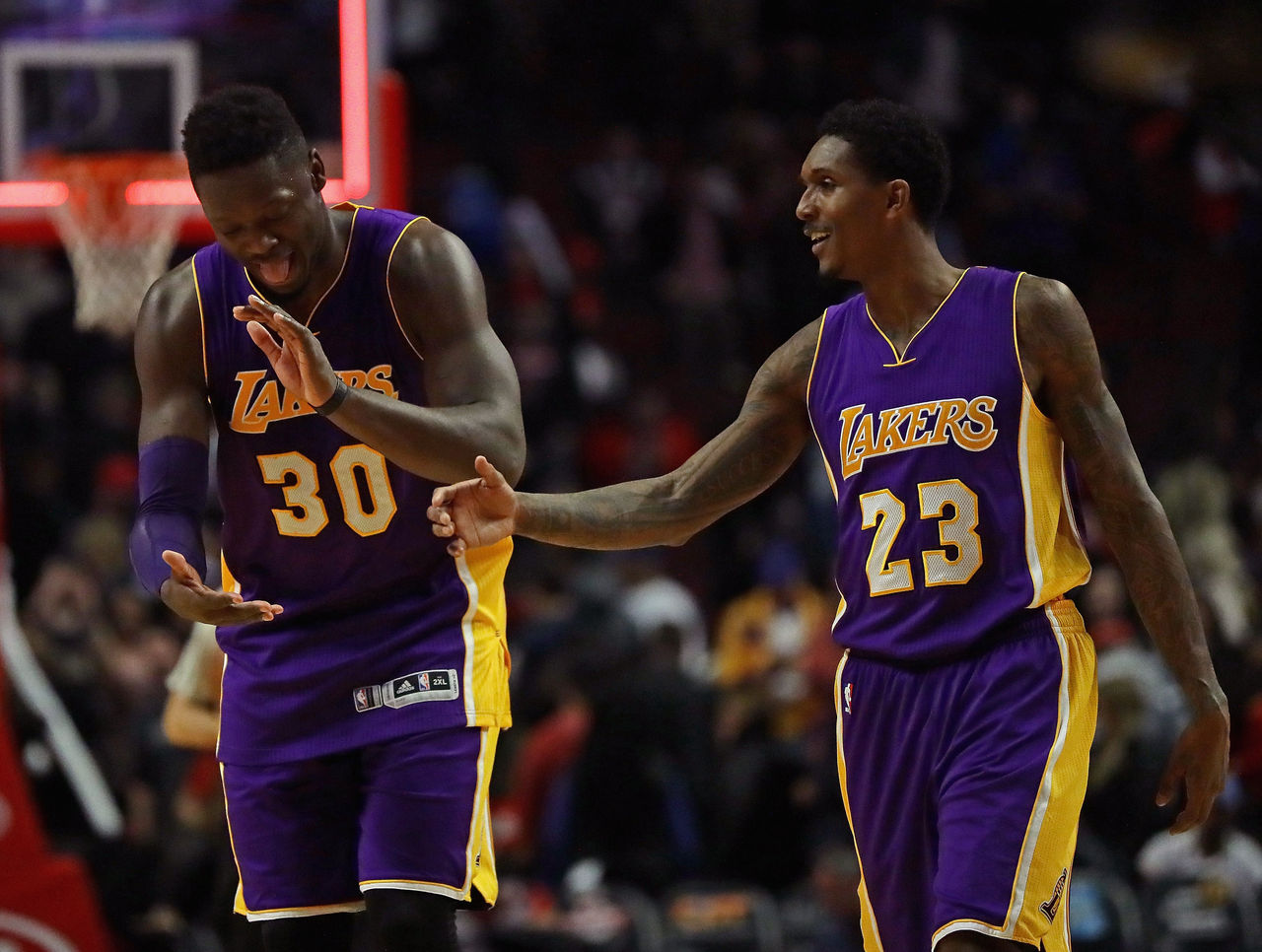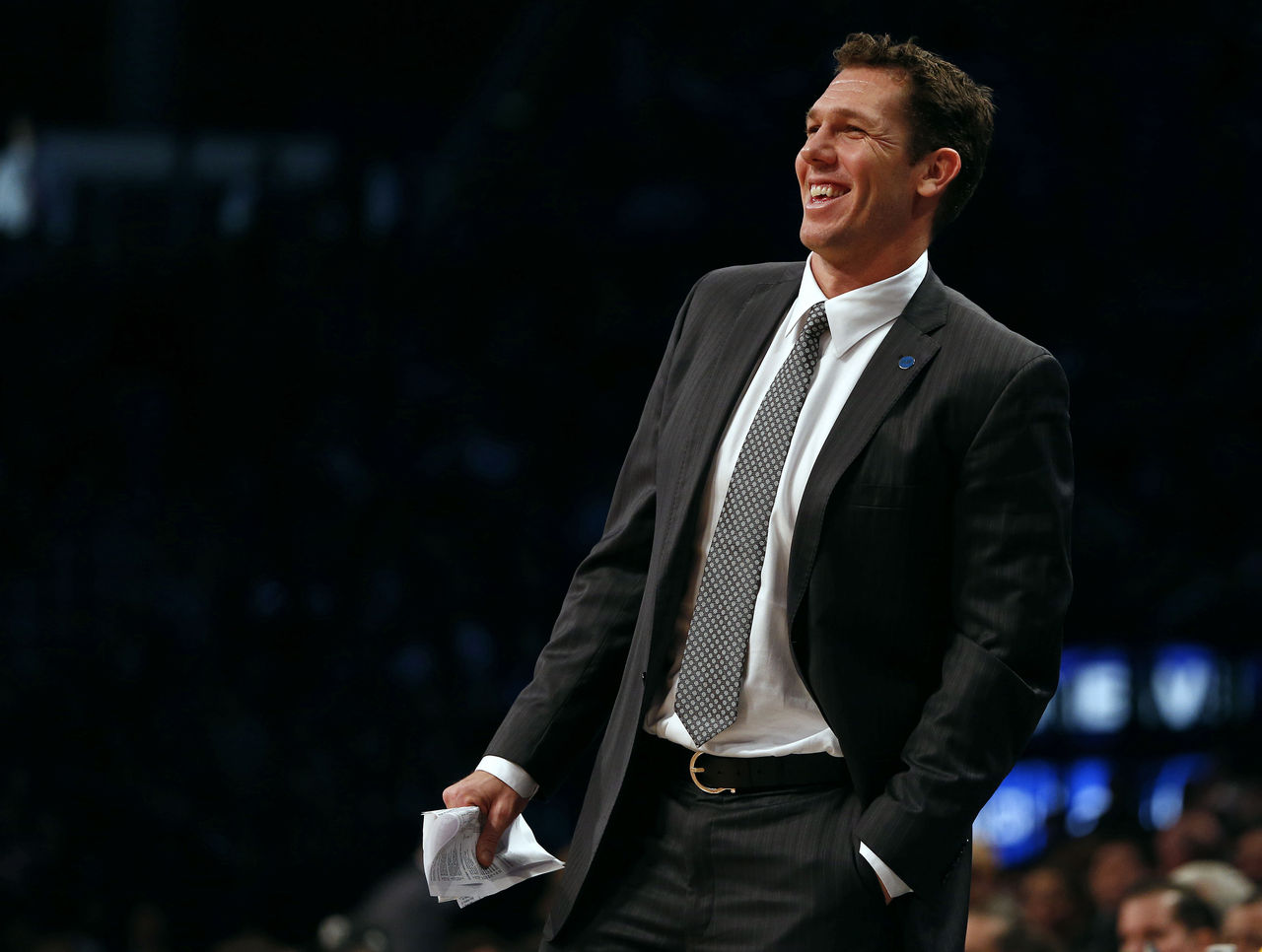Locker Room Access: Upstart Lakers love playing for Walton

The 2016-17 Los Angeles Lakers may not be your father's Lakers, but at least they're not your older brother's, either.
Sure, they're miles removed from Showtime glory and the storied legacy of Purple and Gold basketball, but they're a breath of fresh air after the hopeless teams that took the Staples Center court over Kobe Bryant's final years.
A team whose top four minutes-per-game leaders have an average age of 21, and who had combined for 225 NBA starts entering this season, managed to play .500 basketball through the first 20 games, with one of its 10 wins coming against the Warriors.
Not even the chain-pulling, finger-brandishing Lakers Guy could have predicted this start - not after the Lakers combined for 181 losses over the last three years, then spent their offseason money on Timofey Mozgov and what's left of Luol Deng.
Despite Friday's blowout loss in Toronto, the Lakers enter the weekend just a half-game behind eighth place in the West, with Julius Randle, D'Angelo Russell, and Jordan Clarkson playing starring roles alongside veteran gunners like Lou Williams and Nick Young.
Then there's Brandon Ingram. The No. 2 pick has struggled thus far, averaging 7.7 points on an effective field-goal percentage of 39.7, but he's a freakish 6-foot-9 19-year-old with unlimited offensive potential and the versatility to guard multiple positions (he guarded Kyle Lowry at times on Friday, and not on a switch), who might prove to be the best of the bunch.
The Lakers will lose their 2017 draft pick to Philadelphia if it falls outside the top three, but given the collection of young talent they've already assembled, and Luke Walton's ability to return the team to free-agent prominence, the Lakers are on the right track for the first time in years.
Here's what Walton and the Lakers had to say Friday night about their encouraging start.
Are the 10-win Lakers ahead of expectations?

Luke Walton: Yeah, I think we are. The process is more important (than the results), but to me, part of the process is rewarding players for playing the right way and playing winning basketball. If we can get wins, the veterans are out there doing things right, and the young guys can see that. On the other hand, if the young guys are out there jacking shots because they don't think they're gonna come out (of the game) just because we're developing them, I don't think we're doing them any favors, either. It's kind of a feel thing for our coaching staff, which way we're going to go each night, but we're ahead of where we thought we'd be where wins are concerned.
Metta World Peace: Nah, the players are really good. I've been in training camp with them, so it's different. To the outside world, everyone was saying different things, but to us, we knew D'Angelo is tough, Julius Randle is tough - everyone was counting Nick out, but we knew he was tough. This is actually under our standards. We feel we should've been better at this point of the season. We should've won like four or five more games.
Lou Williams: I think we've got a young core of guys that's not willing to get used to losing. You've got guys like D'Angelo and Julius coming into their second year, Jordan coming into his third year, and it's time for them to turn that corner. There's a lot of other young guys in this league that are starting to have success, and they want to be part of that group, so they all came in focused and ready to go.
What coaches look for when they preach process over results
Walton: The little things. Rebounding, screen-setting, execution of plays. Are we cutting hard? Are we making good, crisp passes? All the things that are probably boring to fans and players are the things that we want to get really good at.
What veterans can really teach young players

Jose Calderon: There's a lot you can tell them about basketball. They know basketball already, but this league is tough. Some guys think when you get to the league, your job is done. It's only the beginning. It depends how good you want to be. The other part is to be consistent. It's not easy. There's 82 games, games almost every night, and you've got to be able to control yourself. Don't get too high when you have a good game, don't get too low when you have a bad game. You have to keep going and keep working.
Lou Williams: Creating habits of how to play. You realize that you're not going to be as successful when you don't pass the ball, don't play well together, or play with energy. Those are habits that you need in order to play consistently. We're trying to instill that in guys and going out and leading by example.
Luol Deng: Just be yourself. I can't really force anything on them. Guys are doing a good job of communicating and talking to each other. When you see something, you let them know, and that's how you get better.
World Peace: I think they're doing it themselves to tell you the truth. I'm just having fun. I'm not doing anything special. I just think they're that good.
Brandon Ingram: Just being in the right positions. They've been in this league a very long time, so they know what different guys can do. They give us pointers on what offensive guys do and what defensive guys do well. It's important to have these guys by our sides telling us different schemes.
Julius Randle: They see little things throughout a game that you can learn. As the game goes on, you gain experience. They speed our learning process up.
What the NBA learning curve is like for young players
Ingram: It's a lot smarter basketball, and we're playing against better, more physical, more athletic guys.
World Peace: It's like a wake-up call. In high school and college, you don't play against this many good players. It's like an All-Star Game every night.
An example of that wake-up call
Ingram: For me, it's the amount of games we've played already. This is maybe our 21st game, and I don't think I played my 21st game at Duke until about February.
Why Walton has clicked with Lakers youngsters

Ingram: He's a player's coach. We love his playing style, and the way he lets us play so loose, get up and down, try to get out there defensively. He iterates that a good game plan for us is to run-and-gun, with sets that let us play freely. The way he directs us, we have fun playing (L.A. is playing at the league's fifth-fastest pace, up 3.8 possessions per game since last year).
Williams: He's like a peer. It's like playing for somebody you've been teammates with. He's still a young guy himself, and just the way that he communicates, I think it gets through to a lot of our guys.
Jordan Clarkson: He's young, he's smart, and he's got a great mind. We relate to him. He puts us in the right positions to be successful, so it's kind of easy to go out there and play for him. He gives us a lot of freedom, but still teaches us a lot.
Calderon: I think because he's young, as well. I think sometimes when you have an older coach, with young guys, it's difficult to get through (to them). But for him, being that young, these guys can relate with what he's saying, with what they're thinking.
Randle: He just cares. That's pretty much it. He just cares. He holds us accountable and wants us to do well.
More Locker Room Access